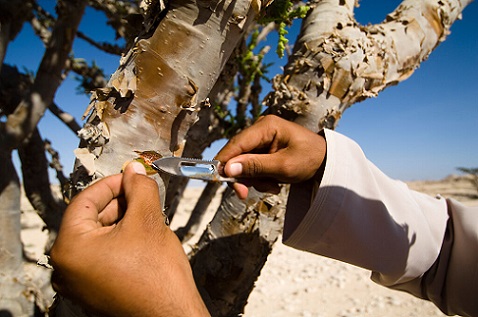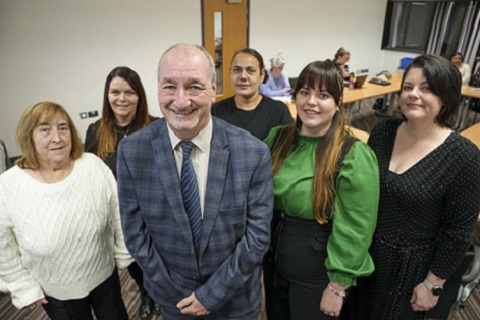If there is a scent traditionally associated with Christmas, that is frankincense – also, one of the gifts brought to Baby Jesus by the Three Wise Men.
And Oman, on the east coast of the Arabian Peninsula, knows how to produce the best one.
The “land of frankincense”, as the country is regularly referred to, offers visitors a wide variety of experiences to get to know – and smell – this aroma that is unavoidable in Oman. Frankincense plays an integral part in Oman's history and heritage.
The Boswellia sacra trees, where most Omani frankincense is harvested, can be found in the Dhofar desert, in the south of the country. The benefits of Omani frankincense are not only linked to perfumery (soaps, lotions, perfumes) but also to health.
Frankincense is believed to have anti-inflammatory, expectorant and antiseptic effects. Due to its “outstanding universal value”, the “Land of Frankincense” is one of Oman's five UNESCO World Heritage sites.
Added in 2000, this site includes frankincense trees, the remains of a caravan oasis and two ports, which were crucial to the incense trade.
Here are Oman's top 5 frankincense experiences for visitors:
- Salalah, the land of frankincense
Salalah, in southern Oman, is renowned for its production of frankincense. The town was a key hub for the trade of this precious resin. Its strategic location made it a crucial centre for the transportation and export of frankincense to various parts of the ancient world. The frankincense trees in the Dhofar Governorate, where Salalah is located, have been a source of economic and cultural importance for centuries.
Visitors wandering through the vibrant souks of Salalah will smell the fragrance of frankincense in the air. Hotels such as At Al Baleed Resort Salalah by Anantara offer a wide variety of frankincense experiences for guests – from food and drinks incorporating frankincense, to guided frankincense tours and frankincense spa treatments.
- Museum of the Land of Frankincense
The Museum of the Land of Frankincense, in Salalah, sheds light on the historical importance of frankincense in the region. It offers visitors a fascinating journey through time, exploring the ancient trade routes, the meticulous process of harvesting frankincense and the cultural impact of this aromatic resin on the Omani heritage. Upon entering the museum, visitors are immersed in an engaging narrative that unfolds through a collection of artefacts, exhibits and multimedia presentations. Displays often include ancient tools used in the extraction of frankincense, historical documents detailing trade routes and informative panels that elucidate the cultural practices associated with this precious resin.
- Frankincense Trail
The Frankincense Trail is a historical route that traces the ancient paths once travelled by caravans carrying frankincense. The trail is an evocative journey through the heart of Oman's rich history, providing visitors with a unique opportunity to explore the landscapes, ancient trade routes and archaeological sites associated with the lucrative frankincense trade.
Starting in Salalah, the Frankincense Trail takes visitors through diverse terrains, including the striking deserts, mountainous regions and coastal areas. Along the way, visitors can discover well-preserved remnants of ancient settlements, trading posts and fortresses that played a crucial role in safeguarding the frankincense trade. To fully experience the Frankincense Trail, travellers can engage in guided tours that provide in-depth insights into the historical and cultural significance of the sites along the route.
- Al-Baleed Archaeological Park
Nestled on the coast of Salalah, the Al-Baleed Archaeological Park stands as a UNESCO World Heritage Site, offering visitors a captivating glimpse into the historical significance of the frankincense trade in Oman. This archaeological marvel is the remnants of the ancient port city of Al-Baleed, which thrived as a bustling trading hub from the 8th to the 16th centuries. A highlight of this park is the remains of a 'frankincense well', which was associated with the frankincense trade. Entry fee also includes entry to the Museum of the Land of Frankincense.
- Cultural experiences with local communities
Engaging with Omani communities in the Dhofar Governorate offers travellers a unique opportunity to immerse themselves in the living traditions associated with frankincense. These cultural experiences provide an authentic and enriching insight into the daily lives, customs and celebrations of the local people. Visitors can, for example, delve into the flavours of Omani cuisine with locals who incorporate frankincense into traditional dishes; and join or witness local farmers on the age-old practice of harvesting frankincense.












